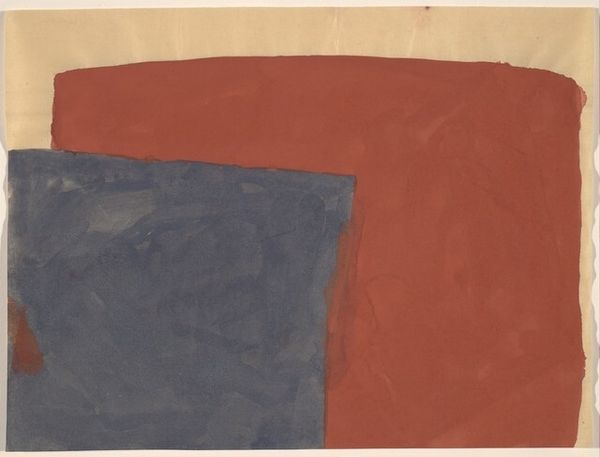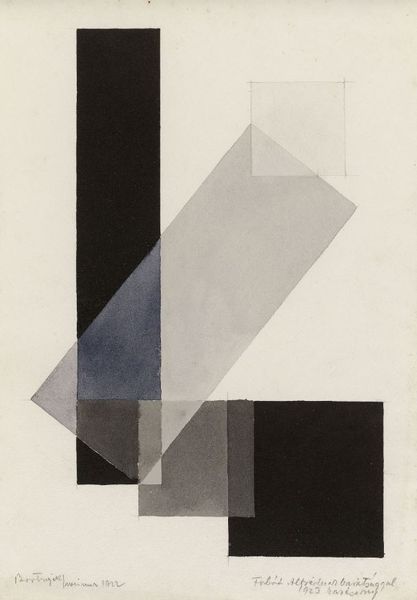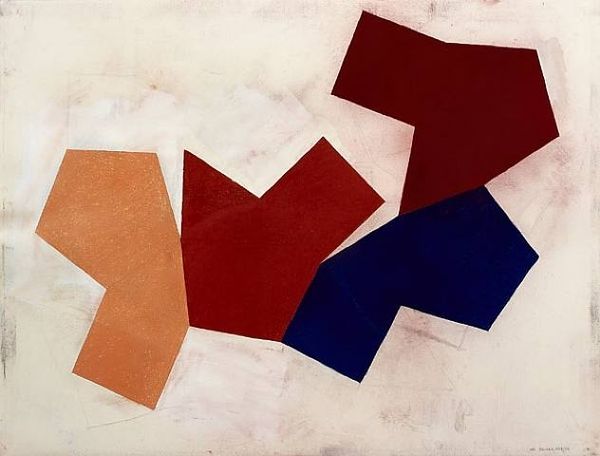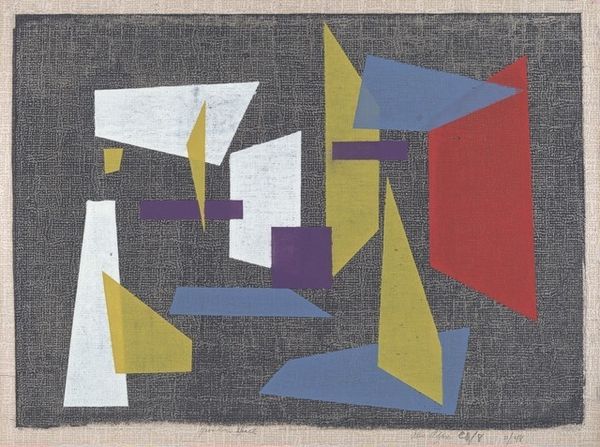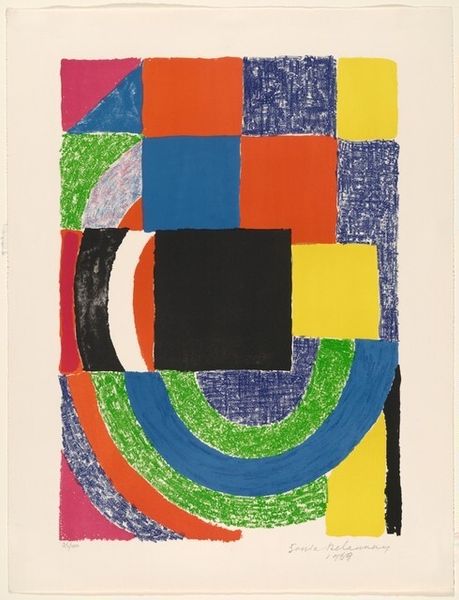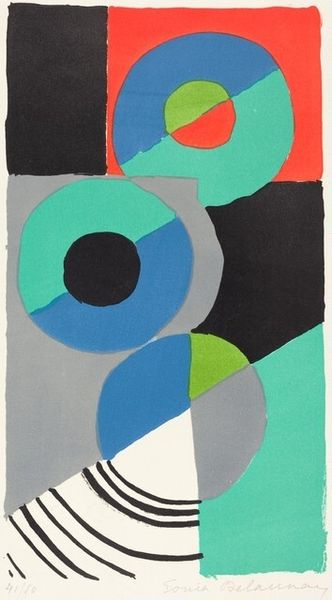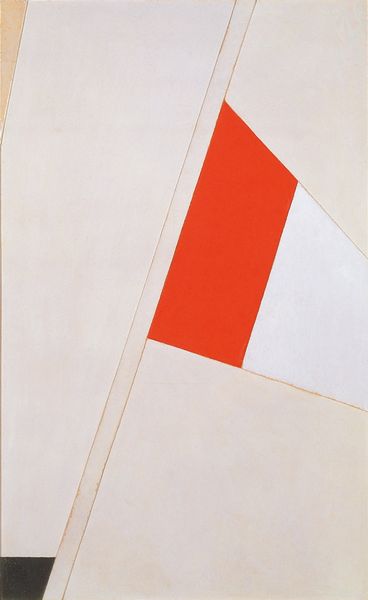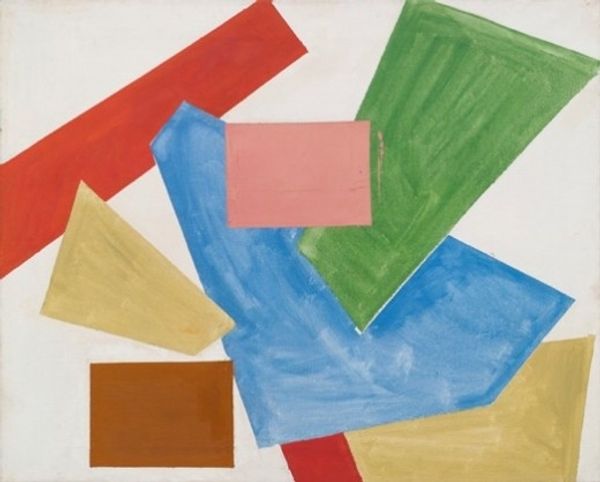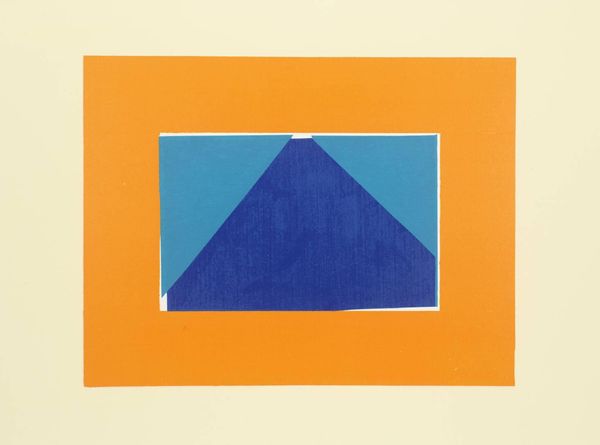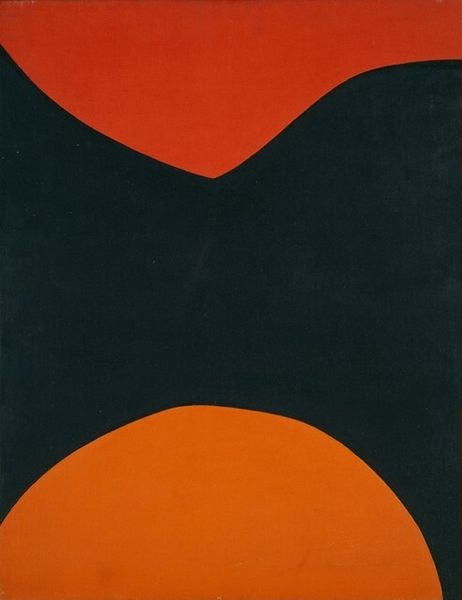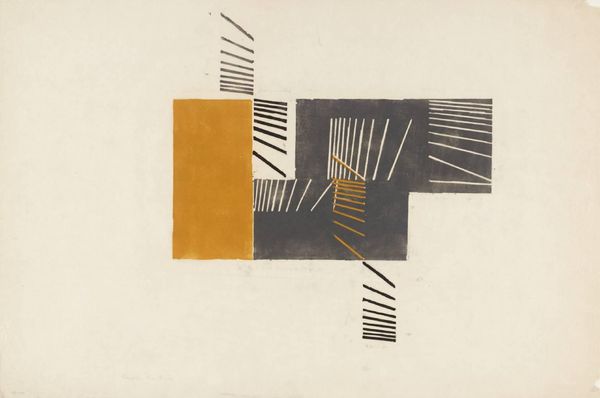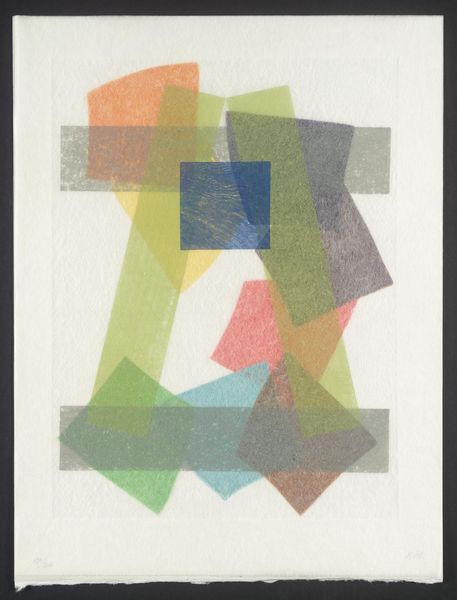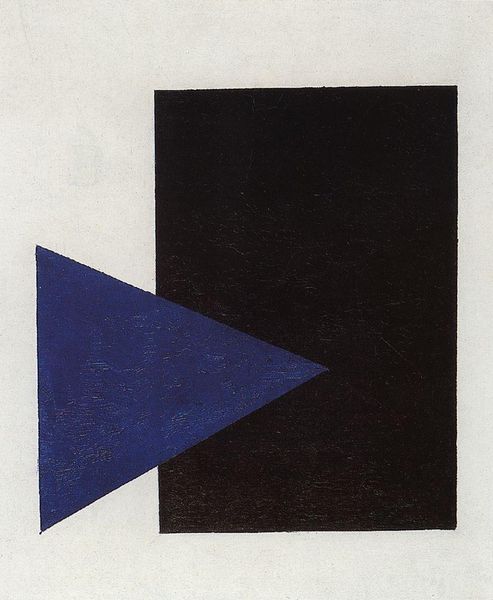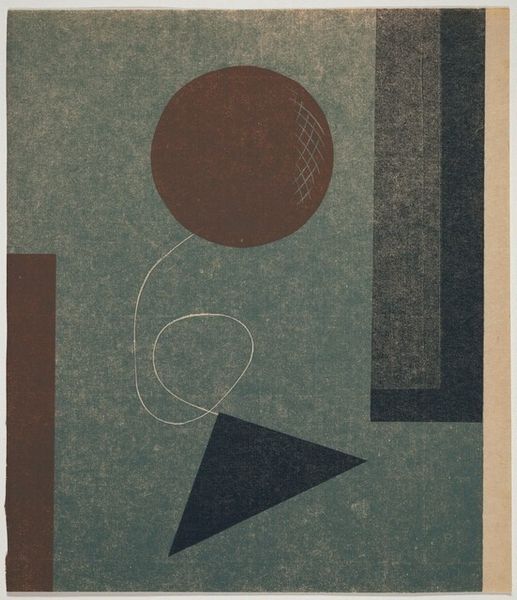
Dimensions: sheet: 96.5 x 127 cm (38 x 50 in.)
Copyright: National Gallery of Art: CC0 1.0
Curator: Mel Bochner's "Vector," created in 1977, immediately presents a bold, geometric composition using drawing medium. The simple color palette and arrangement of forms lend it an almost iconic quality. Editor: It strikes me as a visual challenge, this "Vector." It's a clash of geometric forms – red, blue, pink, and white – awkwardly sharing space. There is tension, as though some of the forms are battling with the picture's flatness and attempting to advance to the foreground. Curator: Well, Bochner was deeply engaged in the conceptual art movement. He questioned how we perceive and understand space, language, and mathematical systems, so it's natural to see challenges within these formal constraints. It's more about the idea than the object itself, even its beauty, though of course, that's subjective. Editor: That idea being the deconstruction of spatial relationships? Looking at this today, in light of digital abstraction and deconstruction, I consider how it could function as a premonition of contemporary issues involving materiality versus abstraction, for instance, or gender performativity where tension underscores what appears deceptively fixed. Curator: Absolutely. Bochner challenged the traditional notions of drawing, too. Rather than representational or expressive, this drawing acts almost as a diagram or proposition. And in this particular period, his work often mirrored the linguistic philosophy trending in intellectual circles that explored relational statements and truth conditions. Editor: It’s almost disruptive, right? Because one could ask, ‘what truths are illuminated here?’ If one’s truths are socio-political, where is the critique? It may appear deceptively benign or simply formal. That is one reason the social and political conditions of the moment in which this drawing was executed are quite relevant to any experience of it now. What social forces may have influenced this artist’s trajectory? Curator: It’s a fascinating discussion point. Perhaps Bochner was deliberately using abstraction as a kind of safe space, a subtle commentary within a very polarized political climate, where direct expression was fraught with difficulty and likely subject to surveillance. Editor: I agree. And even if that wasn't the specific intent, engaging with "Vector" forces us to acknowledge the power dynamics at play. The stark colors demand a certain attentiveness from the viewer, which feels appropriate to this current cultural moment. Curator: A powerful thought that really brings this somewhat obscure but remarkable artwork alive! Editor: Indeed! And thinking about this in new contexts illuminates the many social facets and functions of art-making today.
Comments
No comments
Be the first to comment and join the conversation on the ultimate creative platform.
